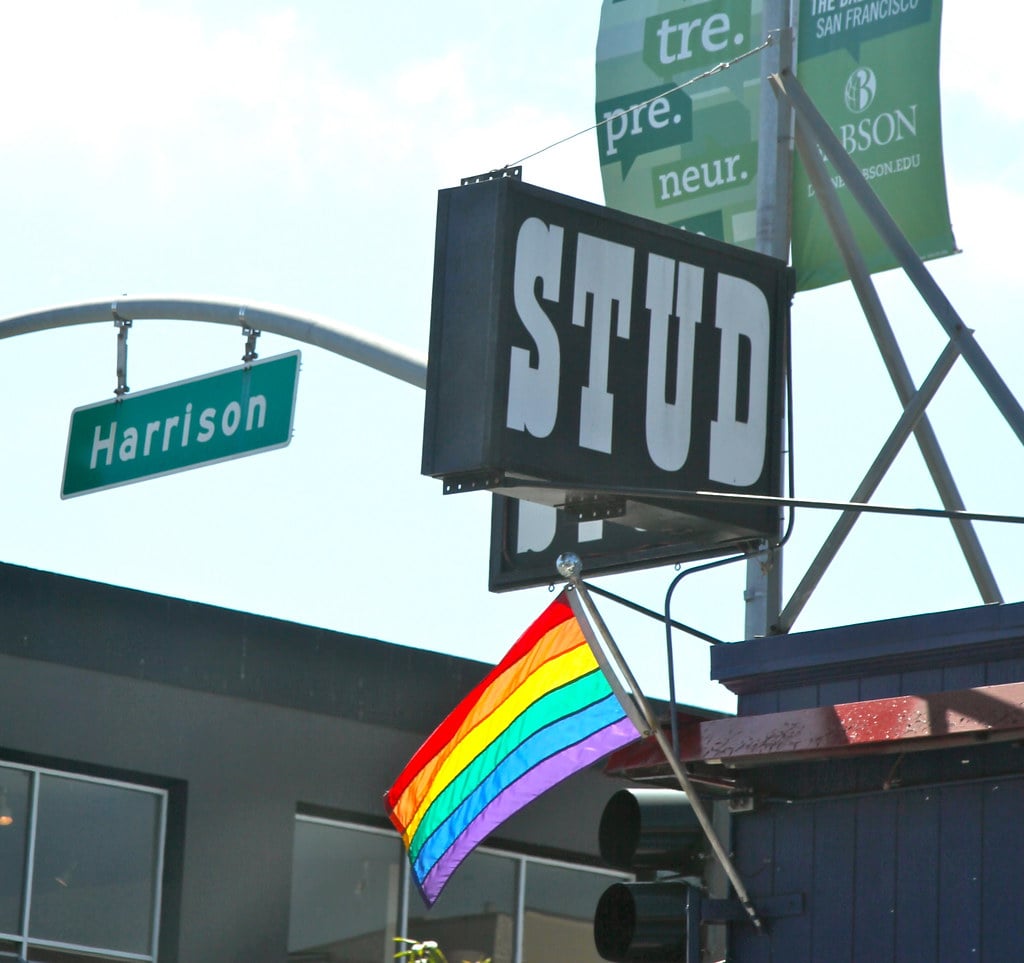
For the past three years, San Francisco gay bar the Stud, the city’s oldest, was fronted by colorful murals with suggestive titles like “Stepping Out” and “Head First,” which had been painted on the bar’s distinctive navy exterior to celebrate Pride Week in 2017. The murals formed the backdrop to tons of selfies outside the bar, which had been in business for over 50 years and had resided at the corner of 9th and Harrison Street for a third of a century.
But when the bar went out of business in May, the murals were not long for this world. On June 20, during Pride Month 2020, its new owners whitewashed them before painting the building over in beige.
Now, six artists are suing the property owner, named only as City Commercial Investments, for damages under the Visual Artists Rights Act (VARA), a law that has been cited in high-profile cases like the suit against the owners of the 5Pointz graffiti mecca in Queens, New York, in which a judge awarded a group of artists $6.75 million after their works were destroyed by a property developer.
The artists in this case—Monica Canilao, Zarathustra Wesolowski, Ellery Bakaitis, Jeremy Novy, Susan Greene, and Haily Gaiser—are represented by Los Angeles lawyer Jeff Gluck, who frequently represents street artists against corporations that use their work without their consent.
“These beloved murals were taken away from this community in the worst way possible,” Gluck told Artnet News in an email. “As we saw with the recent landmark 5Pointz ruling, the law here is clear. We encourage the other side to step up now and do the right thing.”
The suit accuses City Commercial Investments of negligence, intentional destruction of artworks, and infringement of rights of integrity and attribution. The law provides for damages of up to $150,000 per artwork destroyed. Some of the artists involved in the suit had painted multiple works.
The suit, filed last Friday in US District Court of Northern California, says that the owners of the bar even asked the new property owners to allow the artworks to be preserved, and that passersby asked those painting over the images to stop.
In all, the destruction “demonstrated [the owners’] clear disdain for, and degradation of the Artists, and the San Francisco LGBTQ community,” the lawsuit says.
Experts speaking to Artnet News pointed out that the claim hinges on specific legal language.
“A key question that comes to mind, presuming intentional destruction, is why property owners act this way, especially given the amount of information readily available on other similar cases pitting property owners versus artists,” New York attorney and copyright expert Sergio Muñoz Sarmiento, who is not involved in the case, told Artnet News via email. “Do these property owners simply wish to not seek legal advice from lawyers? Or, if they do, do they simply disregard the advice?”
New York University law professor Amy Adler had similar questions.
“Most people don’t know about VARA,” she said. “It’s only been around since 1990, and it’s incompatible with deep-seated American notions of what it means to own property, and the idea that if you own something, you can do whatever you want with it. All the same, the owner was obviously badly advised, or perhaps not advised at all.”
An attorney for City Commercial Investments did not respond to Artnet News’s request for comment.